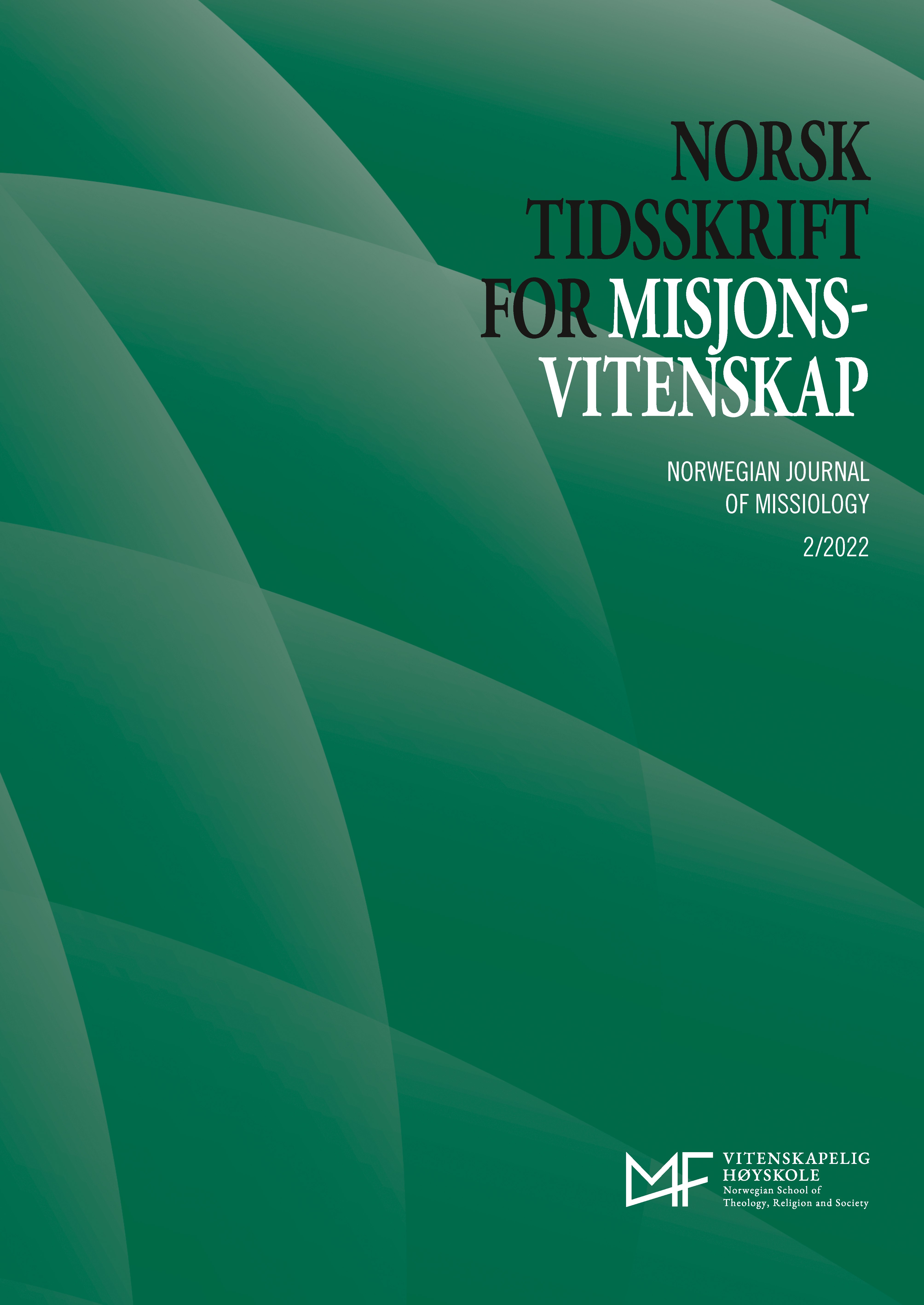Gud på tibetansk
Om å bruke et upersonlig begrep som gudsbetegnelse i bibeloversettelse
DOI:
https://doi.org/10.48626/ntm.v76i2.5515Abstract
Betegnelsen for Gud som er brukt i flere bibeloversettelser i tibetanskbeslektede språk er dkon mchog, et begrep hentet fra tibetansk buddhisme. Frasen betegner et upersonlig begrep, nemlig den «buddhistiske treenigheten»: Buddha, dharma (læren) og sangha (felleskapet). Uttrykket ble først brukt av jesuittmisjonærer på 1700-tallet, og deres utførlige begrunnelser viser at bruken skyldes mye mer enn den overfladiske likheten med den kristne treenigheten. Uttrykk som er brukt i oversettelse av ukjente begreper gjennomgår over tid et semantisk skifte der begrepet blir omtolket og fylt med nytt innhold som samsvarer med den bibelske forståelsen. Skiftet kan gå via en metonymisk eller metaforisk utvidelse av begrepet, og endringen kan være relativt ubegrenset. Artikkelen argumenterer for at det metonymiske skiftet som er nødvendig for begrepet dkon mchog ikke resulterer i polysemi og at det derfor kan gi mindre grunn til misforståelse enn de personlige, men polysemiske gudsbetegnelsene (jf. Gud/gud) brukt i vestlige bibeloversettelser.
Nedladdningar
Statistik
##submission.downloads##
Publicerad
Nummer
Sektion
Licens
Copyright (c) 2022 Norsk tidsskrift for misjonsvitenskap

Detta verk är licensierat under en Creative Commons Erkännande-Ickekommersiell-IngaBearbetningar 4.0 Internationell-licens.
Norsk Tidsskrift for Misjonsvitenskap er i dag et digitalt tidsskrift som er tilgjengelig gratis for alle. Artikler gjøres offentlig tilgjengelige med en såkaldt Creative Commons lisens CC BY-ND på tidsskriftets hjemmeside. Dette innebærer at alle står fritt til å gjenbruke artikkelen under forutsetning av at opphavspersonen blir navngitt.





